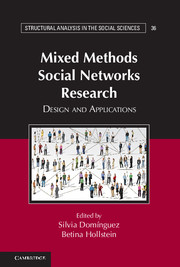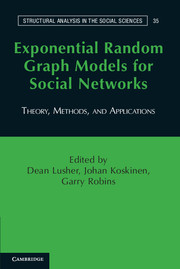Network Analysis
The size and availability of network information has exploded over the last decade. Social scientists now share the stage of network analysis with computer scientists, physicists, and statisticians. While a number of introductions to network analysis are now available, most focus on theory, methods, or application alone. This book integrates all three. Network Analysis is an introduction to both the why and how of Social Network Analysis (SNA). It presents a broad theoretical overview rooted in social scientific approaches and guides users in how network analysis can answer core theoretical questions. It provides a comprehensive overview of descriptive and analytical approaches, including practical tutorials in R with sample data sets. Using an integrated approach, this book aims to quickly bring novice network researchers up to speed while avoiding common programming and analysis mistakes so that they might gain insight into the fundamental theories, key concepts, and methodological application of SNA.
- Provides a strong theoretical foundation for network analysis
- Offers a clear introduction to more complex dynamic and causal models in network analysis
- Gives a flexible set of practical applications that will get the reader actually learning-by-doing network analysis
- Provides a comprehensive introduction to all of the major descriptive approaches to network analysis connecting the theory with the core methods
Reviews & endorsements
‘This is the text social network analysts have long awaited. Written by four of the most dynamic thinkers in the field, it achieves the impossible on multiple fronts: seamlessly integrating theory, method, and implementation; appropriate for novice and veteran analysts alike; truly comprehensive in scope, from the classic to the cutting edge; and somehow both sophisticated and accessible - featuring, for several important concepts, the clearest and most thoughtful treatment of the material I’ve ever seen. I feel certain it will become the foundational text for the next generation of relational scholars and I can’t wait to have it on my shelf.’ Kevin Lewis, University of California, San Diego
‘This wonderful book manages to cover an incredibly wide range of methodological, substantive, and theoretical issues, always making the connection between these clear to even a novice reader. Using careful, but intuitively accessible, discussions of cases, it translates complex theoretical concepts into concrete analytic examples with code. It is the class on network analysis everyone has wanted to take, distilled into book form.’ John Levi Martin, University of Chicago
‘This book provides a wonderful integration of the theoretical and conceptual basis of social network analysis with modern methods. Traditional methods are not forgotten! The accompanying R tutorials are a great resource. The approach is original and convincing. The book offers excellent material for beginners, but also seasoned network researchers will learn a lot from it.’ Tom Snijders, Universities of Groningen and Oxford
Product details
October 2023Hardback
9781107037786
275 pages
235 × 159 × 30 mm
0.83kg
Available
Table of Contents
- Introduction
- 1. Network analysis today
- Part I. Thinking Structurally:
- 2. What is social structure?
- 3. What is a social network?
- 4. How are social network data collected?
- 5. How are social network data visualized?
- Part II. Seeing Structure:
- 6. Structuration and ego-centric networks
- 7. Sociality and elementary forms of structure
- 8. Cohesion and groups
- 9. Hierarchy and centrality
- 10. Positions and roles
- 11. Affiliations and dualities
- 12. Networks and culture
- Part III. Making Structural Predictions:
- 13. Models for networks
- 14. Models for network diffusion
- 15. Models for social influence
- Conclusion:
- 16. Network analysis tomorrow.






